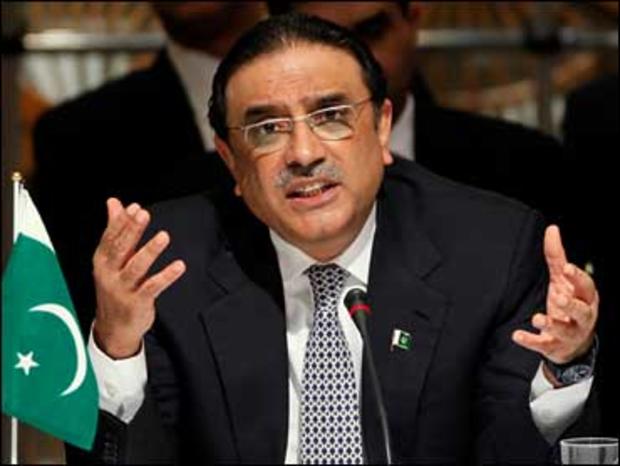Pakistan's Political Crisis
ISLAMABAD (CBS) - Pakistan's pro-U.S. ruling coalition on Sunday night battled to restore calm across the country's political landscape after a regional political party allied to president Asif Ali Zardari's Pakistan People's Party (PPP) quit at short notice, leaving the PPP in minority in the lower house of parliament, the national assembly.
The Muhajir Qaumi Movement (MQM), a political party mainly representing Pakistanis who migrated from India to Pakistan when the country was created in 1947, withdrew its support to the PPP, reacting to the government's decision on Saturday to raise gasoline prices.
The move marked the first major upheaval over gasoline prices since they were raised, mainly to be kept in line with global trends. Western diplomats based in Islamabad, reacting to the latest political developments, warned it was still early to tell if Zardari or his handpicked prime minister, Yusuf Raza Gilani, were in danger of being forced out.
There were warnings that the split with the MQM may in the short term completely paralyze the government. Long term consequences are harder to predict. Pakistan has been ruled by its army for more than half the of country's 63-year existence. Some previous periods of heightened uncertainty have been followed by the military stepping in to fill the void.
General Ashfaq Pervez Kayani, Pakistan's present military chief, is widely known to be an apolitical figure. A western ambassador based in Islamabad, speaking to CBS News on condition of anonymity, said, "While there are no signs of the military stepping in, you have to remember that previous [military] takeovers have been preceded by fast growing turmoil. Much depends on the way things happen in future."
For the U.S., mounting political uncertainty in Pakistan is potentially worrying. This has to do with the support that Washington receives from Pakistan in its campaign to defeat Al-Qaeda and the Taliban in the Afghanistan-Pakistan region, as well as periodic worries in the western world over Islamic hardliners making inroads into Pakistan's politics.
A minister from the PPP who spoke on condition of anonymity to CBS News Sunday said after the split with the MQM was announced, "If a government is weak and struggling for its own survival, how will it be able to pursue interests of other countries, including the U.S.?" The minister added, "Unpopular steps like petroleum prices are forced upon governments through circumstances which are beyond their control."
A second western diplomat in Islamabad who spoke to CBS News on condition of anonymity said while Islamic politicians have only pockets of support across Pakistan, "You can never rule out the dangerous possibility of a ground swell in their favor, especially if governments from the political mainstream become weak and unpopular."
